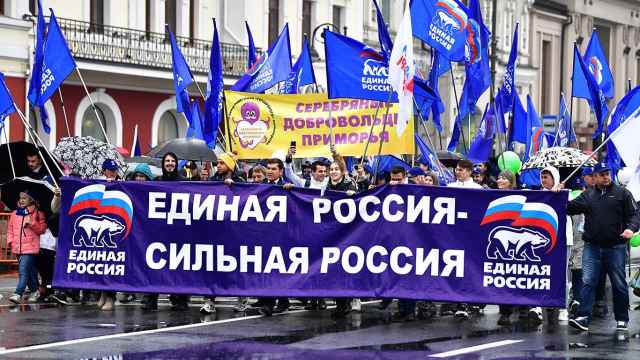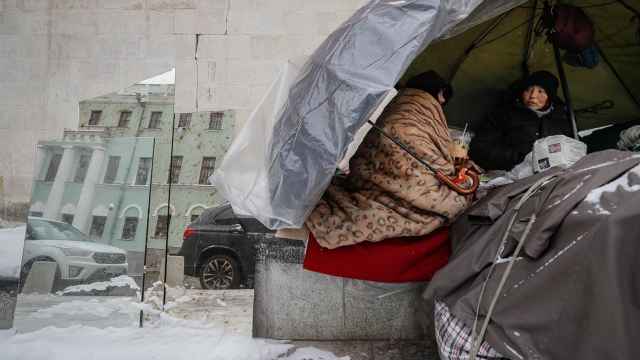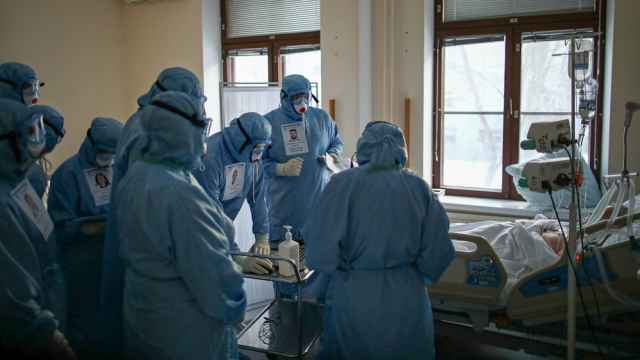One in three Russians supports a tax on able-bodied individuals who choose not to work, a new survey by the state-run VtSIOM pollster has said.
The proposal, long debated in government circles, comes as Russia contends with a shrinking labor force and rising wartime expenditures.
VtSIOM's nationwide survey found that 33% of respondents favor the introduction of an unemployment tax, while 59% are opposed and 8% remain undecided.
Support for the measure is strongest among older Russians. Among those born between 1948 and 1967 — many of whom lived through the Soviet Union’s strict labor policies — support climbs to 44%.
In contrast, younger generations overwhelmingly reject the idea, with 76% of respondents born in 2001 or later disapproving of it, along with 74% of those born in the 1990s and 63% of those born in the 1980s.
The poll also highlighted broader societal attitudes toward non-working individuals. Fifty-seven percent of Russians said they view able-bodied people who choose not to work negatively, while just 4% expressed a positive opinion of such individuals. Thirty-six percent remained neutral.
When asked about the possible revival of Soviet-era legislation that criminalized so-called “parasitism,” broadly defined as failing to contribute to society through “socially useful” labor, respondents were divided: 45% supported the idea, and 46% were opposed.
Notably, 80% of respondents said they would continue working even if they had the option not to, while 13% said they would stop working if given the choice. Seven percent were undecided.
Interpretations of the term “parasite” varied. Forty-six percent defined it as someone who idles and refuses to work. Another 24% described it as someone who lives off the state or relatives. Twenty-two percent associated it with a lack of ambition, while 9% linked the term to addiction, poverty or dependency on others.
Talk of an unemployment tax has periodically resurfaced over the past decade, beginning in 2016 when the Finance Ministry backed the idea.
At the time, the Labor Ministry proposed an annual levy of 20,000 rubles (about $255) for those not officially employed. More recently, some lawmakers have suggested conscripting unemployed individuals to fight in the war in Ukraine.
Russia's official unemployment rate hit a record low of 2.2% in May 2025, equating to 1.65 million people.
Economists have warned that such a low unemployment rate can be damaging, driving up inflation and reducing productivity by stretching the labor market too thin.
The labor shortage has deepened since Russia’s full-scale invasion of Ukraine, with military recruitment and rising defense-sector wages luring workers away from civilian jobs.
At the same time, the shadow economy, which encompasses unofficial and untaxed employment, has ballooned. According to a November 2024 estimate by Labor Ministry official Mikhail Kirsanov, 6.5 million Russians now work off the books.
A Message from The Moscow Times:
Dear readers,
We are facing unprecedented challenges. Russia's Prosecutor General's Office has designated The Moscow Times as an "undesirable" organization, criminalizing our work and putting our staff at risk of prosecution. This follows our earlier unjust labeling as a "foreign agent."
These actions are direct attempts to silence independent journalism in Russia. The authorities claim our work "discredits the decisions of the Russian leadership." We see things differently: we strive to provide accurate, unbiased reporting on Russia.
We, the journalists of The Moscow Times, refuse to be silenced. But to continue our work, we need your help.
Your support, no matter how small, makes a world of difference. If you can, please support us monthly starting from just $2. It's quick to set up, and every contribution makes a significant impact.
By supporting The Moscow Times, you're defending open, independent journalism in the face of repression. Thank you for standing with us.
Remind me later.






